A Culture of Care
Students Share Their Mental Health Stories at OSU
Cowboys United
The Cowboy family takes care of each other, and the university offers a wide-range of mental health resources for its students. Cowboys United for Mental Health is a campaign that directly supports OSU students in need. Six students have shared their story to let their peers know they don’t have to struggle alone.
Morgyn Wynne | OSU Athletics
Graduate Student, Higher Education and Student Affairs
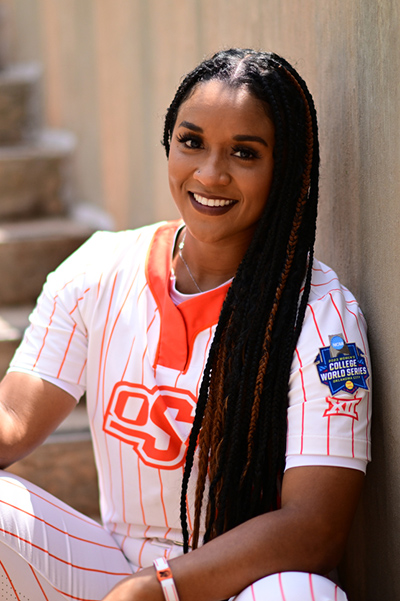
As a five-year student athlete and current graduate student, juggling responsibilities has become second nature to Morgyn Wynne.
She was named a Senior of Significance for her work in and out of the classroom and was a staple in the lineup for the Cowgirl Softball team in last year’s Women’s College World Series. Despite her achievements, it hasn’t always been easy.
When Wynne transferred to OSU following her junior season, she didn’t realize she was still battling depression. Being in a new environment as well as the pressures of playing for a high-level program weighed on her and caused her to spiral. This time, her depression came on much more aggressively.
“At first, I was trying to muscle through it and deal with it all on my own,” Wynne said. “I guess part of me thought I was strong enough… that I’ve recovered before so I could do it again.”
It boiled over to a point that Wynne knew she needed to ask for help. She approached her trainer, who had her meet with a psychiatrist and sports psychologist in the athletic department. From there, she was set up with a therapist through OSU Health Services
In the past year, Wynne said she has been at her healthiest.
“Everything gets easier when you realize you don’t have to fight through it alone,” Wynne said. “Take that huge step and ask for help. There are so many resources for you at OSU to get you the help you need and make your experience as a student what it should be.”
Corinne Kissel | Kappa Alpha Theta
Senior, Nonprofit and Sports Management
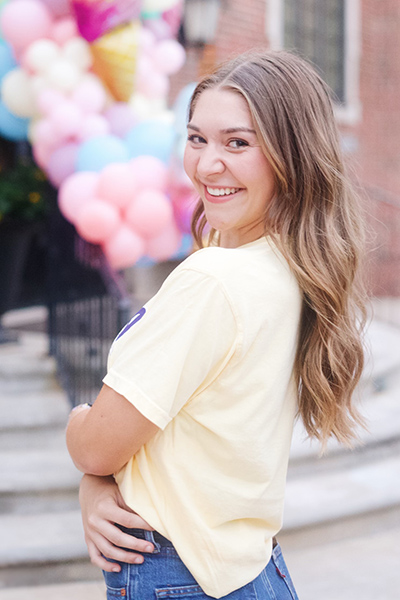
Corinne Kissel’s mental health has been a rollercoaster during her OSU career.
She has been incredibly involved on campus, including initiation into Kappa Alpha Theta sorority, spending three years in the Cowboy Marching Band, serving as a tour guide and currently working in the OSU Athletics department. These activities have brought her some of her favorite memories.
But it’s also a lot to manage, especially while struggling with issues such as imposter syndrome, financial anxiety and body image issues.
“I’ve had to learn to place value and worth in myself before I place value in my schoolwork, friendships, accomplishments and social status,” Kissel said “Those are all worldly, fluid things and don't make me who I am.”
Kissel has utilized TAO (Therapy Assistance Online), a resource offered free to every OSU student to help her learn how to handle her anxiety and other issues. It’s an online library of interactive programs that are tailored to a wide range of problems students may face.
Kissel said it’s a great resource that more people should use, especially for those who are hesitant to try in-person therapy.
“I find using traditional therapy to be a bit overwhelming,” Kissel said. “Just walking into that room… it feels a bit sterile for me. So just going online and using TAO and then being able to process it on my own time has been very useful for me.
“Healing is so joyful. It's not always fun, and it is so hard, but being able to see yourself for who you are is such a beautiful thing. Life is wonderful. We should all experience it together.”
Hayleigh Lamb | OSU Student Foundation
Junior, Psychology
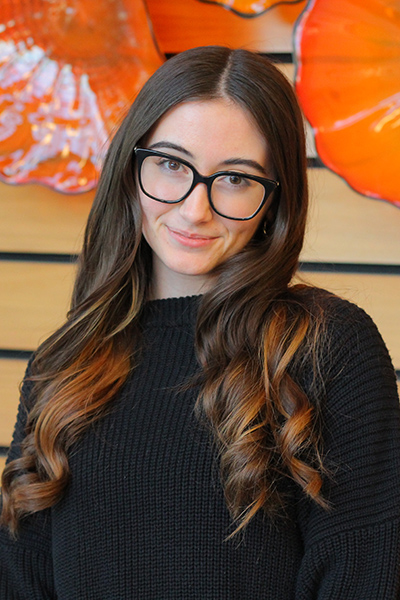
To many, starting college is one of the most exciting times of their life. For others, the transition can be challenging.
Hayleigh Lamb, who moved to Stillwater from Tulsa, didn’t expect to feel so isolated when she arrived at OSU.
“You come here and it’s like a fresh slate,” Lamb said. “In many ways, that’s good. But in other ways, it’s very intimidating. It can be really lonely trying to find yourself, and on top of that there’s also a lot of pressure on you to know what you want to do with your life.”
Lamb struggled with various social situations and, she encountered an intense bout of seasonal depression toward the end of the fall semester of her freshman year. Her grades slipped to an all-time low.
But with the help of her therapist, who she has been seeing since high school, her mental health is now on a steep, positive incline. Through time and experience, Lamb has learned a lot about herself and how to work through her negative experiences.
“Just know that no feeling truly lasts forever,” Lamb said. “It does get better, especially once you can find some motivation to be happier and be better. I think that’s attainable for everyone. Help is out there, and once you get it, the world really is a much brighter place.”
RanDea Bryant | OSU Wellness
Sophomore, Sociology
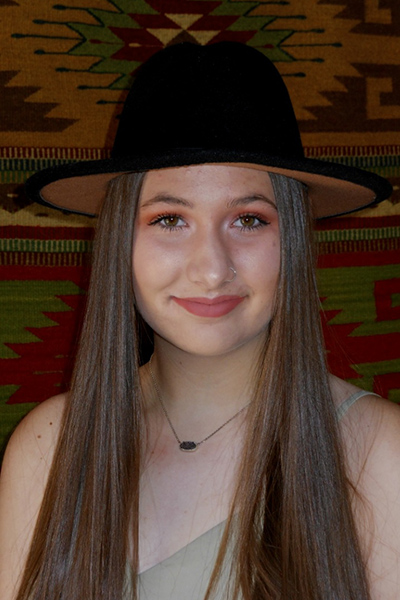
RanDea Bryant didn’t see much promotion for mental health services while going on college visits. At least not until she toured OSU.
As she walked around campus, she noticed numerous signs and advertisements for mental health resources and received even more information from her tour guide. OSU wants its students to know it is here to support them, and that ultimately played a role in Bryant’s college decision.
“Coming here, I have heard about so many different resources,” Bryant said. “I feel like OSU actually cares about their students and pushes for mental health. We hear it in everyday conversations around campus.”
Throughout her time at OSU, Bryant has found therapy extremely helpful for managing her mental wellness. She has taken advantage of the counseling services on campus, including the free sessions offered to every student.
Last year’s Cowboys United for Mental Health campaign provided funding that allowed OSU to increase the number of free counseling sessions per student from four to six.
“Students should utilize the free counseling sessions and the other great resources we have, whether they are struggling or not,” Bryant said. “I tell people all the time, use those up. Not every college has those opportunities. So if we are given these resources, take them.”
Jaycee Mathews | Cowboy Callers
Sophomore, Creative Writing
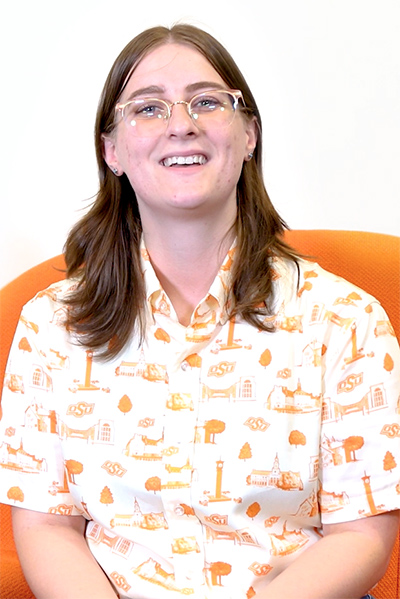
Jaycee Mathews has had to learn to say no.
A Tuttle, Oklahoma, native, Mathews quickly found success at OSU. In just her freshman year, she was an honors student, a freshman research scholar and submitted a Wentz research proposal.
But she didn’t realize she had severely overextended herself. It culminated into a massive case of burnout that resulted in a major depressive episode. She also faced financial difficulties and an uncooperative family that led to her becoming food insecure.
"To me, there’s this glorification of giving everything you absolutely can — even to the detriment of yourself,” Mathews said. “I think in general there’s become a bit of a culture where you just do what you have to do in college, and you make whatever compromises with yourself that you have to. That’s kind of a really horrible mindset to have.”
With the guidance of a professor, Mathews found her way to OSU Case Management, which is housed within the Office of Student Support and Conduct. It’s a resource that connects students with case managers who serve as path-clearers and problem-solvers for issues related to mental health, academic, relationship, food insecurity and other stressful crises.
Mathews has had three case managers while at OSU, and her experience with them has been life-changing.
“All three of my case managers have been the most empathetic and sweet people,” Mathews said. “It's just been a really cool experience, especially for students who don’t have a large support system.”
Mathews has since been diagnosed with ADHD and receives medication from University Health Services. While she still has her fair share of struggles, her improvement allowed her to move into this year optimistically.
“OSU fosters an especially caring group of people, and students need to understand that there are people here specifically to help them,” Mathews said.
Dylan Prater | Cowboy Callers
Sophomore, Music Industry
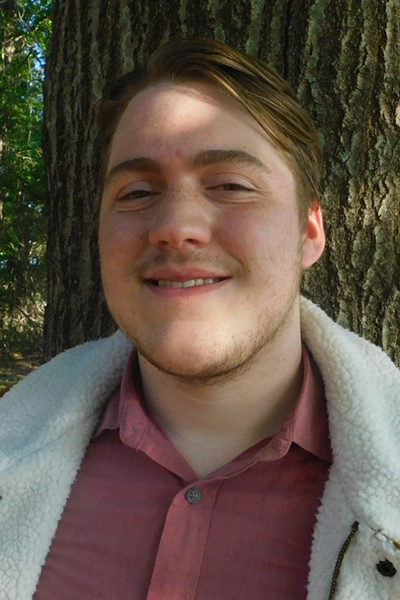
Dylan Prater’s problems were right in front of him, but he couldn’t find a way past them.
As someone with general anxiety disorder, worries can feel insurmountable. But, therapy has helped him through some of his lowest points. Along with learning to recognize bad habits, he was given strategies to combat his issues.
“I was thinking about these things that I was running into and problems I was having that I could probably fix, but there was no plan — it was only pain,” Prater said. “Therapy taught me lessons about how to cope in a healthy way.”
At OSU, Prater has also used the Reboot Center in the Student Union as a way to recharge. It’s designed to be a calming place where students, faculty and staff can listen to music, do relaxing activities and even take a nap.
The Reboot Center was critical in helping Prater to destress in between his two jobs he worked last year.
“The message I would provide to students struggling with their mental wellbeing is to seek out help not because it will fix you, but so that it can help you fix yourself,” Prater said. “Secondly, don't wait until it gets extremely dire to reach out, that just makes it ten times harder.”
To support Cowboys United for Mental Health 2023, visit OSUgiving.com/CowboysUnited